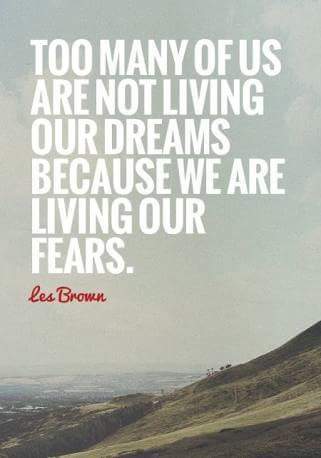Source: https://www.psychologytoday.com/blog/hunger-artist/201306/not-being-the-thinnest-any-more-how-adjust
When you’re recovering from anorexia, it’s one of the most frightening things in the world to realise that you’re no longer the thinnest person in the room. And for it suddenly to be true not just once, but usually. After years of starving yourself, followed by months of regaining the weight you lost in anorexia, there comes a point where you realise that your body no longer looks anorexic: your bones aren’t visible as they used to be, you don’t look brittle enough to break in two, your muscles aren’t wasted away right down to the bone, your face isn’t any longer remarkable mainly for the hollows round the eyes or the concave lines where your cheeks try to connect up with your chin. Maybe you loved those things, or thought you did; maybe you knew you hated them, but you loved and needed what they represented: the illusions of control, strength, and purity that felt so special and precious to you. In any case, when you decided to get better, you decided to obliterate them: to let a protective layer of fat cover your bones and organs again, to let the muscles rebuild themselves, to become again someone that people—and you yourself, in the mirror—can see not as just a sick person but as a person with other, more interesting and less saddening qualities.
When you’re recovering from anorexia, it’s one of the most frightening things in the world to realise that you’re no longer the thinnest person in the room. And for it suddenly to be true not just once, but usually. After years of starving yourself, followed by months of regaining the weight you lost in anorexia, there comes a point where you realise that your body no longer looks anorexic: your bones aren’t visible as they used to be, you don’t look brittle enough to break in two, your muscles aren’t wasted away right down to the bone, your face isn’t any longer remarkable mainly for the hollows round the eyes or the concave lines where your cheeks try to connect up with your chin. Maybe you loved those things, or thought you did; maybe you knew you hated them, but you loved and needed what they represented: the illusions of control, strength, and purity that felt so special and precious to you. In any case, when you decided to get better, you decided to obliterate them: to let a protective layer of fat cover your bones and organs again, to let the muscles rebuild themselves, to become again someone that people—and you yourself, in the mirror—can see not as just a sick person but as a person with other, more interesting and less saddening qualities.
But having decided to let, and make, these changes happen doesn’t mean you’ll find it easy when they do, so I thought I’d offer a few thoughts about how to make it a little bit easier. My thoughts split into two strands: the strand that says be gentle and patient with yourself, and the strand that says simply stick rigidly to your plan (i.e. keep eating). They can require somewhat different attitudes, but they come together in the importance of just waiting it out, and waiting for it to be better.
I’ll begin with a diary entry from Christmas Day of 2008, which was a day I remember vividly as one when my new body (I’d been eating more since mid-July, and I weighed about 52 kg, with a BMI of about 18.5) felt very alien to me. The things I wrote then bring together some of what I want to talk about now.
Thursday 25th December 2008, 11:56 pm
Difficult. Lovely food, & I’ve eaten too much—i.e. the right amount, a good amount for Christmas; but the aftermath—or rather, the lull between dinner proper & the leftovers I ate more ravenously & uncontrollably—was difficult, & D [who would soon become my boyfriend] had to help me through it. Or rather, he didn’t have to—but he was able to; & I feel calmer & better for his having rung & texted. I was captivated by one of the awful Corfu photos of me & Sue [my mother], comparing it with those taken on North Sands this morning. I looked deathlike then I know; but can’t help staring, & longing with a great insidious part of myself to be her again. That other sexless joyless creature. D was shocked—had tears in his eyes, he said, when he saw it; a concentration-camp survivor; someone he’d never dare touch—nor one, I said, who would want to be touched by him. I feel again I’ve burdened him with my past; but it’s felt real today, the fear, as I see my fat puffy face in photos where my bones used to give it definition. But he says he likes curves not angles. And Tom [my father] has given me a beautiful dress—yet another long sleeveless thing, wine-coloured silk […]; & I could try on the dress & parade around in it without embarrassment about my arms [being too thin]—even if the photos I thought appalling.
The first thing to be aware of is that everyone in recovery has moments, even whole days, when they feel disgusted by their new, bigger body and long for their former smaller one, when however often they recite all the good reasons for regaining weight, and all the things that this process is and represents besides gaining fat, none of it has any force against the sheer overwhelming feeling of being fat, ungainly, in the wrong body. Sometimes, the only thing to do is cling on to those mantras you should have developed for yourself—all the reasons why anorexia made life intolerable, and all the physical and thereby psychological restoration that the higher numbers on the scales or the tape measure represent—and to wait for the awfulness to pass, which it will, as everything does.

Five months into recovery
Source: Emily T. Troscianko
That’s for the worst times. For the rest, and to pre-empt those, a few other thoughts might help. Perhaps most importantly of all, be patient. This all takes time. The early stages of rehydration and restoration of fat deposits may be uneven. You may have a slightly bloated looking face, as I do in this photo, which in my diary I called ‘fat’ and ‘puffy’, and which now looks terribly terribly tired—illness was exhausting, and recovery was even more so—but with a light of hopefulness in the eyes. Fat may also be deposited preferentially around your middle to begin with, to help protect vital organs. This is perfectly normal, and with time everything will even out, as long as you continue to be strict with yourself, and eat as planned. Remember that the body dysmorphia that often goes with anorexia—hich seems to manifest itself not just in explicit body representations and perceptions but also in automatic motor behaviours (Keizer et al. 2013)—won’t instantly be cured. But it will, with time, and consistent eating and consistent efforts to address its explicit aspects.
At an explicit level, articulated aesthetic ideals will take time to shift from their anorexic incarnations (staring enviously at catwalk models’ upper arms or whatever) to the acknowledgement of beauty in different, healthier kinds of bodies. While your articulated values still lag behind how your body looks, there’ll be all the discomfort of cognitive dissonance as you work towards a kind of body that you’ve spent so long finding reasons to reject—but it’s very important not to attempt to reduce that dissonance by eating less again, and instead to work on reducing it by seeking out and acknowledging alternative, more real, forms of beauty in people whose bodies support rich and varied lives rather than crippling them.
article continues after advertisement
The more you can be patient, and take the long view, the more you’ll be rewarded in the end. My body four years ago, at (or just over) a healthy weight, was nothing like how it is today; part of this is due to the barbell training, but much of it is just time: time for fluid and fat to be redistributed, time for muscles and tendons to grow and be used and further strengthened, time for you to learn how to be at ease in your body and to get to know what it can do and what it can’t (yet). Nothing stays quite the same, ever, whether we want it to or not, but in the years following the restoration of a healthy bodyweight after anorexia, this constant mutability can be a source of delight, manifesting the human body’s miraculous ability to restore itself from the lowest point of deprivation. This depends, again, on bravery and strictness in resisting the urge to restrict and lose weight again because everything isn’t instantly how you’d like it to be. Give your body time, but also give it the best possible chance.
And it sounds awfully clichéd, but try not to fight against how your body is changing; embrace the changes. This is a mental attitude, but it’s one (like all mental states, indeed) that can be nurtured through specific actions. For example, don’t keep trying to wear all the same kinds of clothes you used to when you were ill; lots of them won’t suit you any more (though some may now look much better on you), and clinging to the old styles won’t help you move away from your anorexic body. Enjoy, ideally with other people, the journey of finding out what works for you now, but don’t expect everything to. Another thing that applies specifically to women, and which I found easy to embrace but which for others can be very difficult, is the newly feminine quality of your body, and – as noted in the diary entry – its now potentially sexual character. This was something that I’d completely failed to think about before I began to eat again, so consumed was I by worries about my tummy getting bigger, but the fact that I now began to have breasts again was actually quite a delight. Getting hips again was more difficult, but seeing that side of myself come back into being, and seeing others’ reactions change accordingly, made leaving skeletal behind much easier.
Stopping fighting your body by feeding its appetites again should go hand in hand with a willingness to be kind to it and to relearn how to listen to it. Obvious ways of doing this are things like massage, which can feel wonderful when your body is in the midst of such profound structural change. Slightly further along the line, yoga as part of outpatient treatment for adolescents with eating disorders seems to have beneficial effects on ED symptoms including preoccupation with food and anxiety and depression, with no negative effect on BMI (Carei et al. 2010). I’ve recently taken up yoga again—the last time I tried it I was still very ill—and it’s lovely to feel how it instantly attunes me more delicately to the capacities and limitations, in strength and flexibility, of all the parts of my body, and how it gives a calm context in which to stretch myself, literally and figuratively. Later still, strength training can have similar benefits, along with the added one of making you significantly stronger, with all its attendant benefits for cardiovascular health, bone and joint health, and metabolism. For women, post-anorexic or not, I think that getting physically strong can be a very potent way of declining to buy into anti-feminist equations of thinness (and hence weakness) with beauty, and for men recovering from anorexia, getting strong can be a way of reasserting your masculinity in the way that weight gain more generally naturally re-emphasises femininity. It shouldn’t be done too soon (maybe not till your bodyweight is healthy or close to healthy), and should be done with supervision, but for me, barbell training was a crucial factor in coming to understand, not just in the abstract but through the whole of me, that regaining weight was not just getting fatter, but was a fully constructive process of creating a newly beautiful, capable, dependable body for myself.
article continues after advertisement
Remember that just as you have to contemplate constructing a character for yourself after anorexia, you have to construct a body for yourself too, one that will be what you need it to be for the adventure of being more fully alive in the years to come. Neither your character nor your body can be created from a blank slate, and especially after the control obsessions of anorexia, waiting and seeing what happens can be as empowering an attitude as taking things into your own hands, but the possibilities for what you can now let and help your body become, now it’s no longer trapped in the dangerous tedium of being skeletal and weak, are exhilarating. Enjoy them, with that mixture of strictness and openness which above all says: there’s time.
My thanks to the reader whose question prompted this post













































